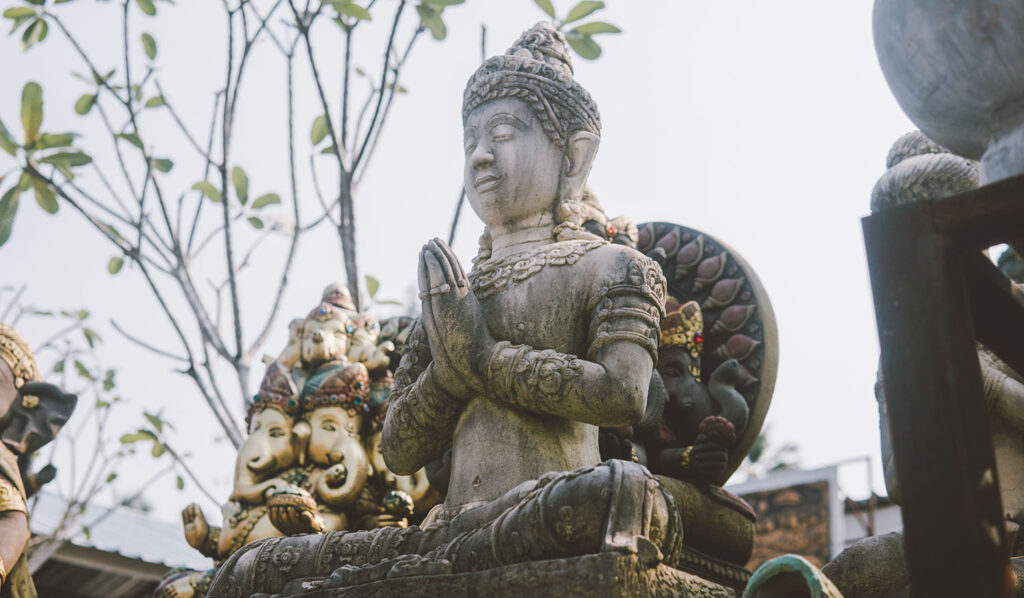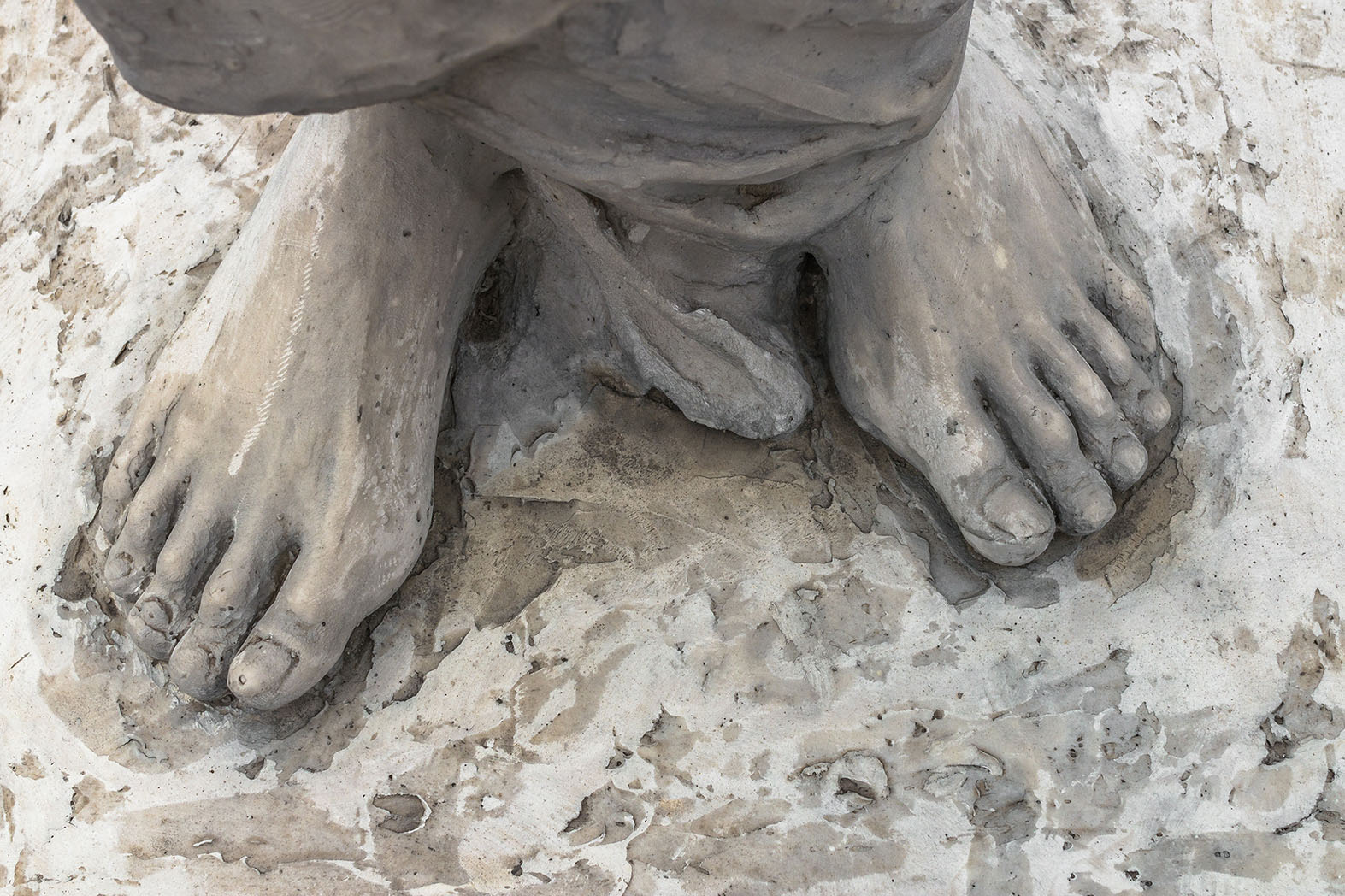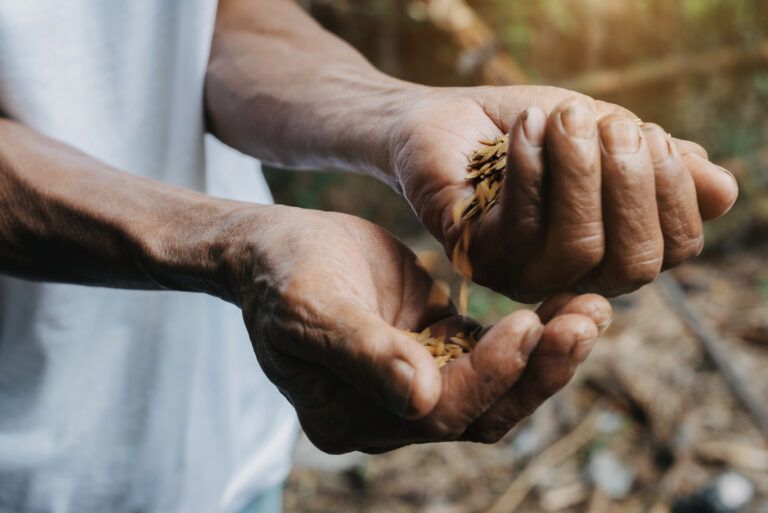To Wash and be Washed

One Saturday afternoon, I took a jeepney ride bound for Manila. Some two or three blocks before reaching the Welcome Rotonda—the landmark roundabout indicating the borders between the City of Manila and Quezon City—,I alighted at the intersection of Quezon Avenue and Cordillera Street, and walked southwest toward the Center for Migrant Youth at Sta. Mesa Heights on Cordillera Street. I had been reading Fr. Ben Villote’s weekly column in the Sunday Inquirer magazine quite regularly for some years already. That was why I really wanted to see if we could invite him to be our retreat master for the pre-ordination retreat.
It was quite a long walk from where I got off—almost a kilometer. Finally, I saw an old house on the left that had the signage of the Center for Migrant Youth on Cordillera Street. There was a doorbell string outside the gate, I literally pulled it to ring the bell. A young man approached the door. I introduced myself and told him my purpose. He ushered me to a small veranda and told me to have a seat. There were about three old Savannah rattan chairs, each with a cotton polyester-covered base-and-back cushion. The equally old rattan round table with a glass top on it completed the impressively simple and down-to-earth ambience of the place. The cool breeze of June in 1992 helped cool down the humidity and warmth of the mid-afternoon sun. I was sitting on the front porch and staring out at a huge tree, when Father Ben arrived and reached for my hand. I immediately stood up and reciprocated his simple greetings and his welcoming handshake. After a short self-introduction to Father Ben, he conversely introduced me to the world of the Center for Migrant Youth.
He must have been only in his early fifties then. His austerity might have made him look weaker and his physique looked a little older, but there was wisdom written all over his face. He was soft-spoken, but his sharpness and candidness could be arresting and unsettling for political and ecclesiastical powers that be.
Father Ben started off with how he had sacrificed his very active parish ministry in Taguig and in Sta. Ana, in favor of his newfound vocation to attend to the formative needs of the migrant youth.
“Imagine those young men flocking to Manila from different provinces of the North and South of the country—wounded, hurt, abandoned,” he started his story, “restless, homeless, and aimless. Government does not take care of them. Neither does the Church. So, I want these broken and wounded young men to see the human face of a teaching and caring Church.”
“Even some priests in the Archdiocese called me names for my decision not to assume a parish ministry. I was called stupid, foolish, and crazy, because in their eyes all the years that I invested in philosophical and theological studies seemed to have been all set aside and waylaid by the mere thought of ministering to these dirty and rough migrant young men. And every time we talk about ministries, the Archdiocese is dead-set only on maintaining existing ones, and any proposal or plan to open new ministries would fall on deaf ears and would surely be left on the backburner.”
I did not see any hint of rancor in him, though; he merely dished out sad facts.
“These young men sold their bodies to predators at the Luneta park. They were hooked on sniffing illegal substances to forget their hunger. If you listen to their stories, you will know that many of them left their homes in the hope of finding a better future for their families, by pursuing their Manila dream. The others left their homes in rebellion—angry with their own poor parents who could not give what they wanted or needed—things like money, clothes, shoes, food, or schooling. Not finding odd jobs here in Manila, they could only make do with what little money they had in their pocket. In time, survival meant they had to snatch hand bags, watches, necklaces, and bracelets, or engage themselves in the sex trade. Thank God, I was able to talk them out of this quick-fix mentality that had easily dashed their hopes of a better life.”
The conversation turned more and more formal and solemn. I looked around—feeling a little uneasy. Sensing I was a little disturbed, Father Ben, asked if I was bothered by the cruelty and unfairness of the real world.
I nodded, not knowing what to say.
Father Ben, then, pointed to a large streamer hanging on the wall. I thought, at first, it was a political statement, knowing how active he was in the First Quarter Storm, a footnote or reference to the series of demonstrations, rallies, and marches in protest of the Marcos regime back in the seventies.
He made me read it aloud:
“I cannot do anything to make God love me more. Therefore, I cannot do anything to make God love me less.”
Fresh from my four years of theology, I thought I was already equipped enough to defend moral and doctrinal orthodoxy and to cross swords with people who would bend it for their selfish ends. I wanted to ask him, “what about sin as an act of defiance against God’s love? Is it all right, then, to commit sin, knowing that God’s love remains infinite and unchanging?”
I was about to raise that defiant question when, suddenly, Father Ben explained, “it is the foundation of all rehabilitation…and all renewal. God’s love is infinite and unchanging. Whatever you go through, God’s love is there. If you believe that God loves you, you can do all things with love. You can pray. You can work. You can serve. You can sacrifice. You can hope. You can laugh. You can celebrate. You do not go on offending the God you love.”
I had to scamper for shelter and loosen my grip and insistence on doctrinal orthodoxy, as he was saying all this so fast like an unending gunfire, red-hot flaming, and spewing truths I would seldom hear.
“Here I teach them how to hone their skills, how to pray, to trust, to respect, to forgive, to understand, and to love. I give them literacy programs. I am not alone in this. From time to time, I also invite some of my friends to teach them language, mathematics, or empower them with livelihood programs. Once you open their minds to what good things they can create, then, you are sure they are already on their way to renewal. I have already divided them into groups, and they take charge of running the house. They take turns cooking, washing dishes, cleaning the house, marketing, and doing all other household chores, even plumbing and fixing minor electrical problems. We are like a family here, like a small seminary. When they are through with the program, I do job-referrals and send them to my friends who work in the food industry, furniture industry, wherever. Some of them get hired and they perform well in the industry. What gives me joy is not that they now have a job of their own, but that their values and outlook in life have changed for the better. Many of them are well-trusted by their managers and that alone makes me happy.”
“How do you sustain your programs, projects, and activities—I mean where do you get your resources?” I asked him.
“From Him,” he pointed upwards. “You see, Soy—(oh, he called me by my nickname, like we had already known each other for many years!)—, for more than ten years now, God has never failed me. He sends me angels every now and then. I do not get any monthly subsidy from the Archdiocese. You know my biggest benefactor? He is not even a Catholic. He is a Buddhist.”

“One time a group of Japanese tourists happened to pass by this area here and they saw the signage of the “Center for Migrant Youth.” They asked me what this was all about and what we were doing in here. After some minutes of conversation, they got my address and bank details. The following month I received some big amount from them. Then, they would do it from time to time. Some of my friends would also contribute to the upkeep of the house, and, thank God, we are able to survive all through these years.”
“God has never failed me yet. Just trust in Divine Providence. Do you like that kind of life?”
Surprised, I said, “yes,” hesitantly. But I knew deep inside this was the kind of life I wanted: to be poor with the poor!
I looked at the wall clock, and I was worried that our conversation began to stretch out. He excused himself for a moment.
When he came back, he gave me a slice of papaya.
“Take this.” I felt a little embarrassed that he even had to bother himself going to the kitchen and serve me this fruit.
Shyly, I said, “no, Father, thank you.”
“Take that. That is good for your chastity,” I chuckled in embarrassment, still. I shyly obliged.
In five minutes, I was ready to bid him, “good-bye.”
I almost forgot my only purpose in visiting him that Saturday—to invite him to be our retreat master.
So, I had to tell him as fast I could that we were inviting him. He quickly checked his calendar and noted that he had already said, “yes,” to a previously arranged commitment. But sensing I was a little frustrated, he told me, “If all of you can come here, instead of my going to a retreat house, maybe, we could have the pre-Ordination retreat just in here.”
I told him we were planning to have the retreat in the Augustinian Recollect Sisters’ Retreat House in Tagaytay.
“Well, then, I will pray for you during your retreat days,” came those assuring words.
In short, we had to look for another retreat master for our pre-Ordination retreat.
***
We got ordained. We had our Thanksgiving Masses. We took a short vacation. We were then sent to our first assignment which would normally last for three years.
***
Tondo was my first assignment. It was in that Parish of Our Lady of Peace and Good Voyage on Del Pan Street, where I spent the first half of my diaconal exposure, so I already knew what life was like in there, so I asked for it when we were told to write down our preferences.
I loved Tondo. I loved its urban-rural setting. I loved its people. I loved its simplicity. Its rawness. Its potentials. Its vibrance.
But just when I thought I would be serving my entire term of three years in that parish, our Provincial Superior Carlos Imas, OAR, together with his Provincial Secretary, Fr. José María Juango, OAR (who used to be our high school seminary rector and professor in high school Chemistry), suddenly came for a fraternal visit, and told me that I should go to Rome for further studies. I asked the Provincial Secretary if I could at least first finish a year of pastoral ministry in the parish that I loved.
“Don’t be cowardly,” came the words from Father Juango. “I know you. I know you are capable of further studies. Don’t be a coward, petoso!” (Did he say, “petoso”?). I hated his brand of Spanish bravado. I simply wanted to have at least a year of pastoral ministry, because I was ninety-nine percent sure that after studying in Rome I would be assigned to the theologate, with very little pastoral experience.
Also, at that time, I was attending classes leading to a Diplomate in Communications at the Asian Institute of Journalism and Communications, in obedience to our Vicar Provincial Fr. Victor Lluch, OAR.
So, both my pastoral ministry and my journalism studies had to be put on hold—whether temporarily or permanently, only God knew.
By virtue and by the vow of obedience, I had to pack up my things and fly to Spain then to Rome.
***
In Rome, one late evening, I was busy with my academic assignment, studying Faith and Freedom, by Schubert Ogden, and Process Theology, by John Cobb and David Ray Griffin. I had to submit a reaction paper the following day, when suddenly my local superior in Rome knocked on my door, and handed me a greeting card from…surprise… Fr. Ben Villote!
Father Ben wrote succinctly on the obverse of the greeting card, “you see, Father Soy, you are there in Rome, because your superiors want to create you in their image. Someday, you will become a superior, too. But I beg you, as soon as you finish your studies in Rome, and as soon you come back to the Philippines, come back immediately to the poor. I know your heart belongs to them.”
“Wash the feet of the poor (service) and allow your feet to be washed by them, too (humility).”
Suddenly, the memories of the poor that I had served in the slums of Isla Putting Bato, Bungad, Parola I, Parola II, even those residing in as far as Wagas Street in Tondo, already beyond our parish jurisdiction, flashed back in my mind. I celebrated countless Masses for them. I gave them Communion. I anointed them. I advised them. I taught them. I catechized them. I gave them the Word. I organized them. I got sick of pneumonia for them. I faced danger and death for them every single day.
Suddenly, I felt so guilty that I turned my back on the poor.
I cried a bucket of tears that night.
“Wash the feet of the poor (service) and allow your feet to be washed by them, too (humility).”
To wash and be washed… to wash and be washed!







